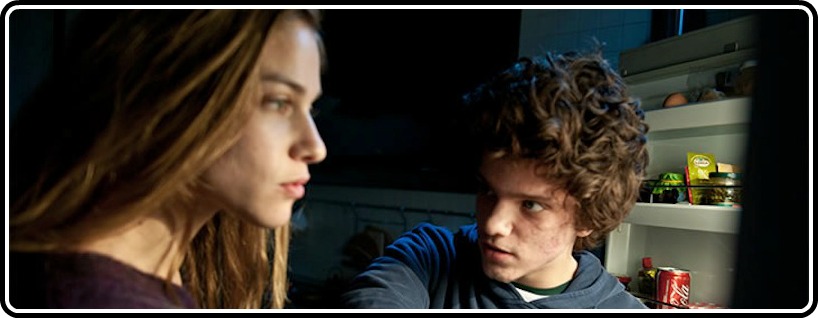
In a few ways, Bernardo Bertolucci and his new film Me and You reminds me a lot of Roman Polanski and his latest films. They’re relatively small affairs, much different than their previous high profile releases that dotted the ‘60s or ‘70s, and are personal statements made by world-renowned auteurs who seem to actively chuckle at the thought of the phrase “The twilight of my career.”
Me and You—about a 14-year-old misunderstood loner who hates school and whose mother has sent him to a psychotherapist, causing him to hideaway with his older half-sister in his building’s nearly-empty basement—is Bertolucci’s first film in over ten years (and his first film in Italian in 30 years). The gap in time was caused by a debilitating illness that left the director not only wheelchair-bound but also in a deep sense of depression. It is, therefore, obvious to make a connection between the boy, Lorenzo (played by actor Jacopo Olmo Antinori, who seems like he stepped right out of a Pasolini film), and the director himself. They’re both isolated—both intentionally and not—and intense observers of the world around them who use that isolation as both a gift and a curse. The film itself, however slight and opposite of Bertolucci’s previous epics like The Last Emperor or 1900, is a refreshing and volatile late entry in the director’s storied career.
The true star of the film is Tea Falco as Olivia (Lorenzo’s half-sister), the disrupting factor in Lorenzo’s reclusive experiment. She needs a place to stay, she needs a place to kick her drug addiction, she needs a place to mull over her future in a world that’s given her the short end of the stick. At times tender and at others unpredictable, she throws Lorenzo’s carefully planned out new existence into disarray like a tornado whipping everything up and out of order.
People may find the film boring simply because nothing much goes on, though Bertolucci is obviously putting more into the interactions than the action, which gives the film the feel of an intimate stage play. Antinori holds his own against Falco even when he acts insufferable towards her, but such fickle behavior is what gives the film a small spark of life. The pair aren’t friends, but they sort of try to be and they’re not strict siblings but they try to be that too.
It is thus a movie about coming to understand, maybe not the bigger picture of life but to try and understand the things that are right in front of you in the now. It is another story of youth in an endless cinematic string of stories about youth (see: the homage to the last shot of Truffaut’s The 400 Blows in this film’s last shot), and while it isn’t groundbreaking, Bertolucci’s film does offer up a great little chamber piece that gets the job done whether you’re a 14-year-old outcast, a 73-year-old film director, or anything in between.


